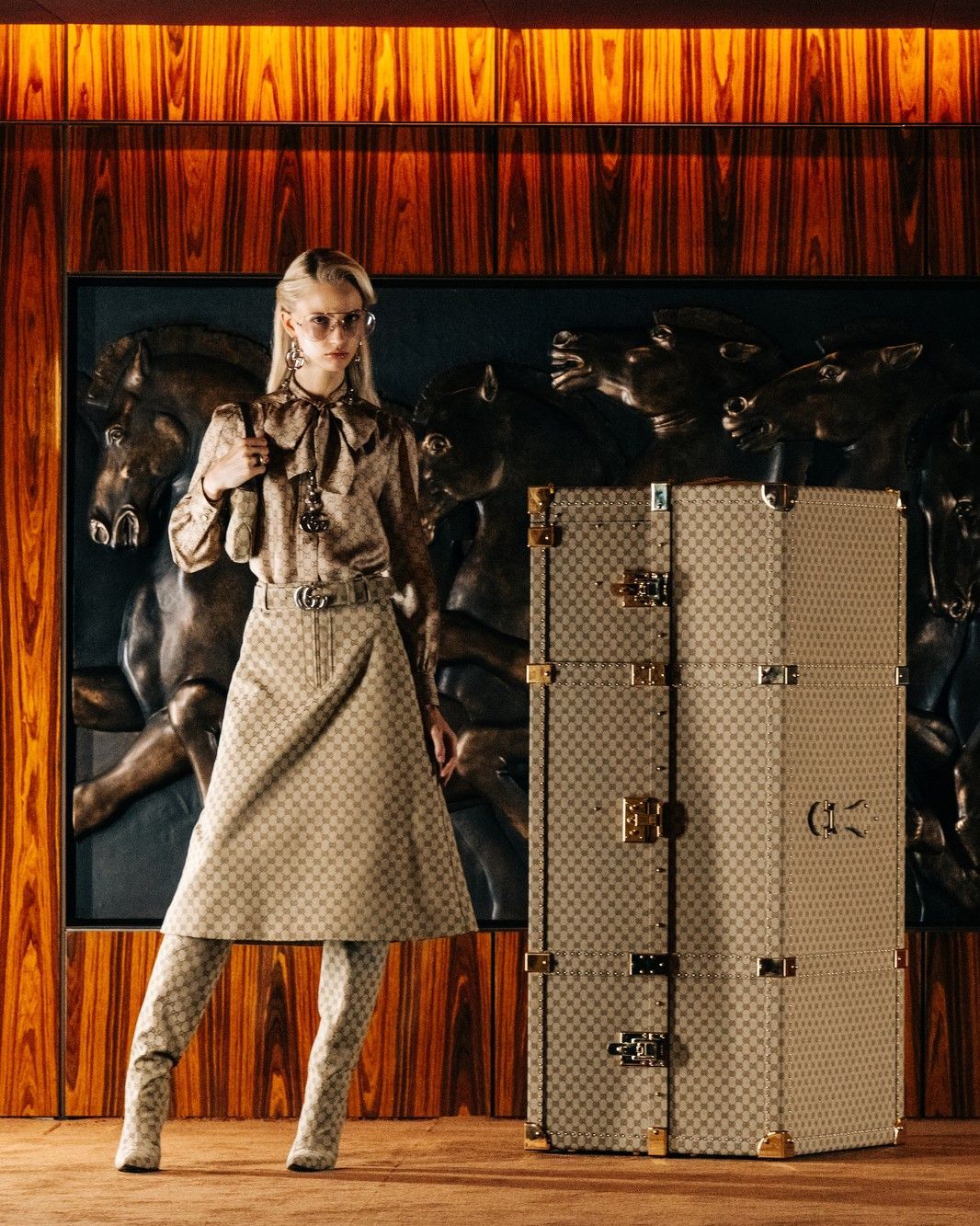
Gucci SS20: can fashion be revolutionary without being controversial? The protest at Gucci's SS20 show by Ayesha T. Jones questions the concept of political correctness in fashion
A few days ago, during Gucci’s SS20 show, the brand received backlash after opening their show with a bevy of models dressed in variations of straitjackets. The concept , as stated in the press released was aimed to show how biopolitics affects and restricts us as a society, or in other words how society’s constraints to define identity is limiting to us all. During first part of the show the show, artist Ayesha T Jones — a participant of the show , staged a protest with the words "mental health is not fashion" penned on her hands and was eventually supported by others on social media following the show. Gucci eventually responded to the protest, explaining the meaning behind Alessandro Michele’s concept , and further explaining why it was taken out of context.
Ayesha is a non-binary underground artist who claims to have suffered from mental health issues and has family and friends who have also had issues with mental health. Following the protest, the artist also donated 100 % of her earnings from the show to mental health charities but the mere occurrence of this event makes us question, as an industry what exactly is it that we desire from fashion?
In the past year, the concept of political correctness in the industry has been a major conversation in fashion — consumers and industry insiders (including myself) have been urging designers and creatives to not step across the line of cultural and political offensiveness or sensitivity. Yet at the same time, we have all been pushing for the industry to be more critical and innovative with creating new conversations and trends by ways of making art.
This in itself can be contradictory depending on the causes for which we as a society reprimand a brand. It can be understood in the case of blatantly crossing cultural boundaries, for example , using blackface — an infamous culturally offensive caricature , or being a European brand who blatantly uses minority cultural costumes such as American-Indian headdress to help sell it’s product, or even the case of Gucci a few seasons ago when they made a Sikh turban into an accessory.
All these are valid clear instances of lines brands shouldn’t cross. However, in the case of creating abstract modern fashion that can be considered art, there must be some lenience on topics designers can touch that don’t include upsetting or capitalizing off minority cultures.
Take for example, the late and great Alexander McQueen, nowadays to millennials, the designer is somewhat of a genius, a fashion icon that told abstract stories with controversial collections like “Highland Rape,” “La Poupee” , and “The Horn of Plenty” that used themes like rape, lust , mental illness and bondage as vessels to tell stories with much deeper meanings. Yet we are the same ones to form the tight constraints of creativity for creatives today.
There are many who are completely against the concept of political correctness in fashion like senior fashion journalist Angelo Flaccavento, who wrote in Vogue Italia that “political correctness is a conformist trap , set in the name of a false respect that is perhaps even more divisive and discriminatory.” However the concept of political and cultural correctness can be understood in cases where major brands are capitalising and making big money off minority cultures. Otherwise, in other cases, Flaccavento’s points can also be understood as designers, if expected to make art, as opposed to simple clothing have to be allowed an extent of freedom when it comes to tackling societal issues. Slightly opening these doors is something we must aim to all work towards, otherwise the industry will no longer produce minds like McQueen or Galliano’s. So as an industry we must ask ourselves do we want reverence or revelations? How can we give these brands voices without restricting them too much to the access of words to have conversation?


















































